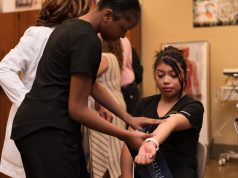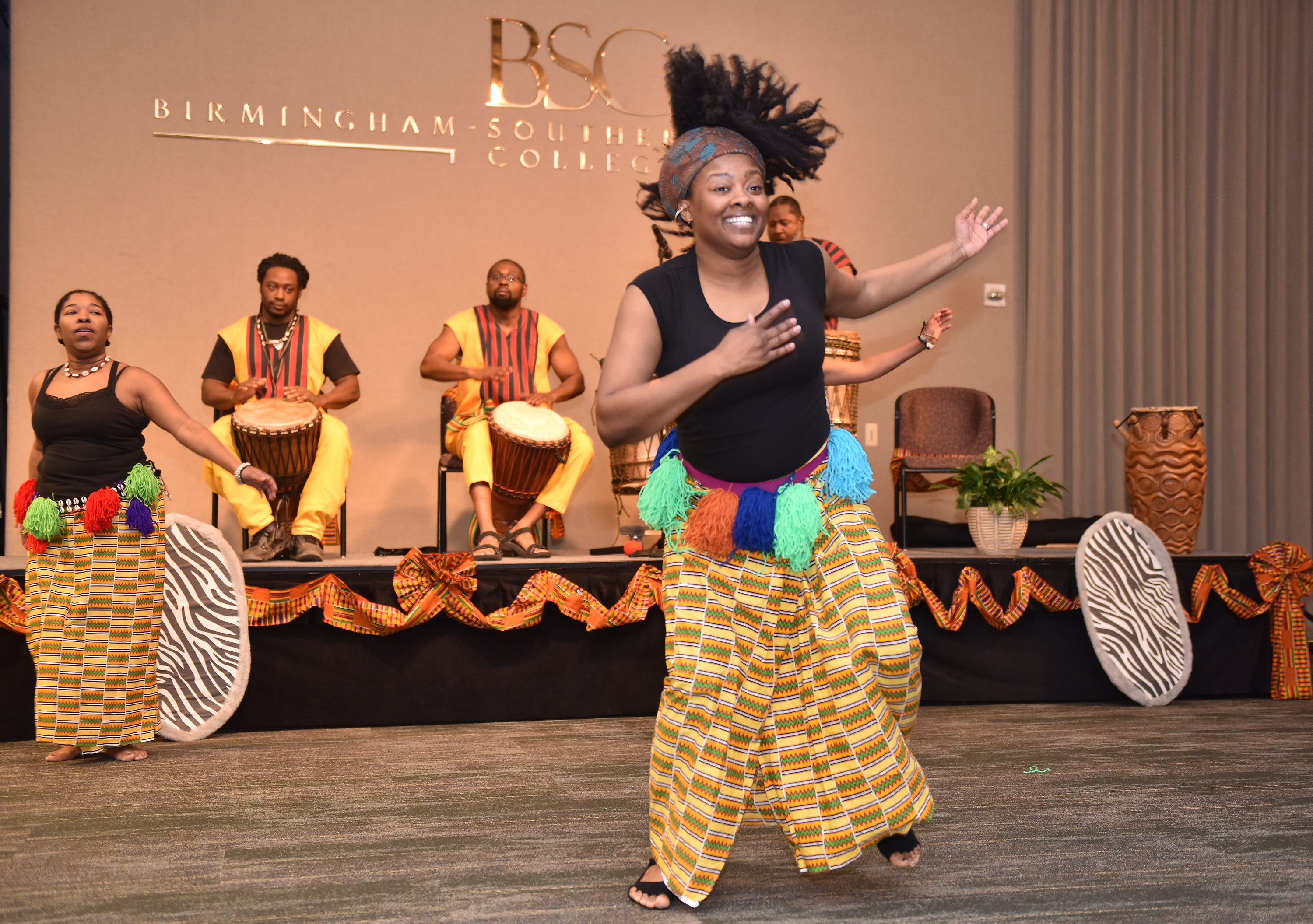
By Ariel Worthy
The Birmingham Times
Ophelia Acquah, a special education teacher at Robinson Elementary School in Fairfield, comes from African royalty. Her grandmother is a Queen Mother in Asamankese, Ghana.
“She rules that place,” Acquah said. “My great-grandfather established that town, so my family has most of the land there. It’s like Europe, where there is a prime minister and the kings and queens, like Queen Elizabeth, who control things. That’s what my grandmother is. So, my father is actually a prince who could be a king. He renounced his crown and gave it to his brother, so they pretty much control the land.”
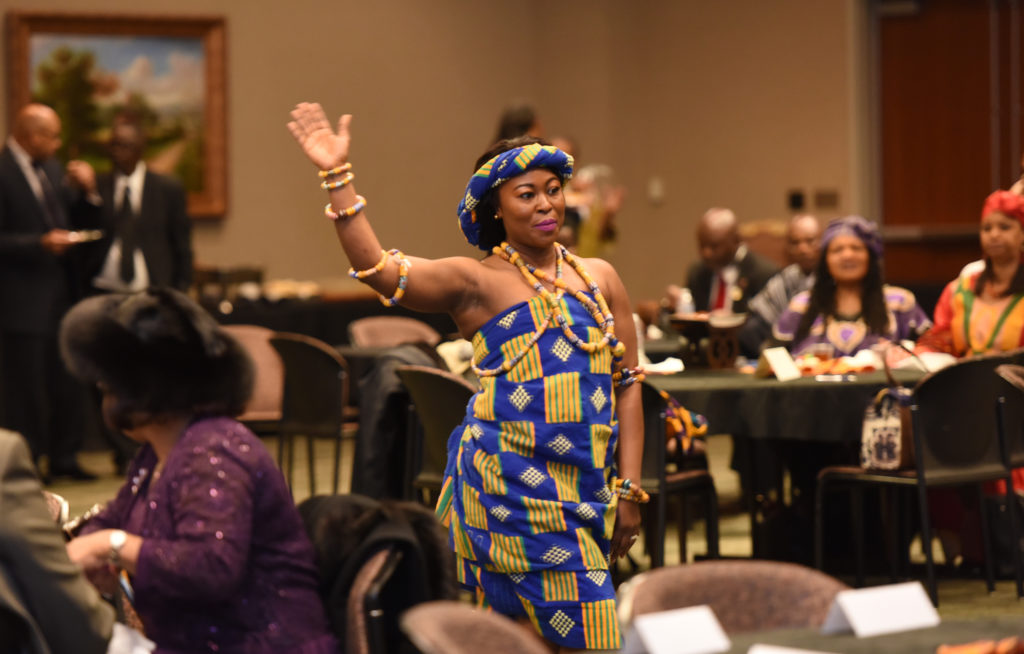
Metro Birmingham is home to many natives of Ethiopia, Ghana, Kenya, Liberia, Nigeria that are among the 54 countries that comprise the continent of Africa. They have come to America and the Magic City for education, family, employment, and many other reasons.
“Most Africans who are rich send their children abroad … because some of the kids develop bad habits because the money is there and some of them don’t really respect [hard work],” Acquah said. “Some [send their children abroad] for knowledge.”
“My father came here to learn, so he could go back home and help,” she said.
Acquah, however, came here to meet her family. Acquah, whose name is Akosua Tweneboa-Kodua (Ah-coo-see-ya Treh-neh-bua Ko-do-wah), moved to the United States in September 1989, when she was 12 years old, to be with her father, who lived in Chicago at the time; she moved to Alabama to attend the University of West Alabama (UWA) in 1995.
“Because my father was here, my intention was to meet my other siblings,” she said. “I was the only child between my mom and my dad, and my motive was to meet my siblings. It was a change of environment, but I went home often. I didn’t have a chance to bond with my father a lot.”
The Rev. Eddie G. Gibson is pastor of the Brewster Road Community Church in Grayson Valley. He and his family left Liberia as refugees in another African country because of civil unrest.
“We came in January 1991,” he recalled. “We moved back [to Liberia] in April 1995. We ran out in April 1996 and [moved to] Birmingham because we [had] friends, we had people that we knew here.”
Culture Shock
Acquah remembers experiencing culture shock when she arrived at Chicago’s O’Hare International Airport in 1989. She was not used to seeing so many white people.
“In Africa, the white people we see come to evangelize,” she said. “Even though I was used to seeing some white people, there weren’t a lot of them. I would see more [people from] Lebanon, Malaysia, and India. The white people I saw in Ghana had darker skin. When I came here I saw pure Caucasians and asked my Dad, ‘Where are all the black people?’ He said, ‘They’re here. You’ll see them.’”
In middle school Acquah was one of only a few black people, and in high school she was one of only 10.
“We moved to predominantly-white areas,” she said. “When I met black people, you’d think I was in heaven.”
But the reception wasn’t what she expected. Some Africans say they meet more resistance from blacks than whites.
“Sometimes I talk to [black] people and they say, ‘You Africans think you are better than us. I feel like I’m seen as a threat or something, but I’m not,” Acquah said.
“Here I come from Africa, [and I’m] more accepted by the white community. … It used to offend me and hurt me when I would get those negative expressions [from blacks]. But when I go through black history and learn about it, even as a teacher, and I look at those issues, I say it’s not a personal attack.”
Meeting Black Americans
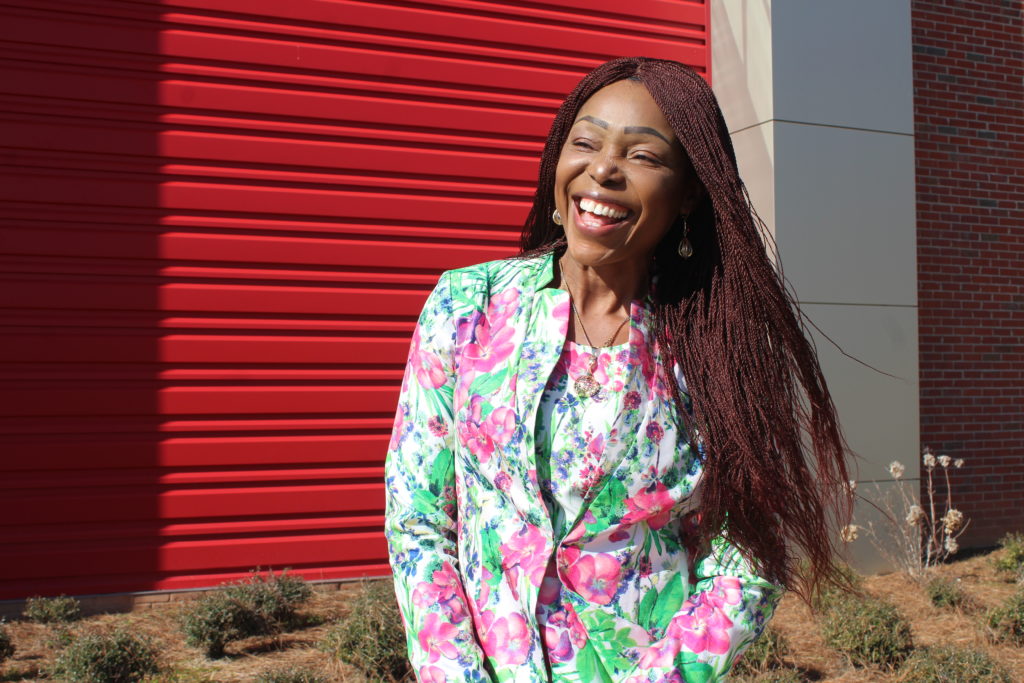
Oluchi Elechi, a native of Nigeria who came to Alabama in 1993 to attend Alabama Agricultural and Mechanical University on a track scholarship, said some students would make fun of her.
“When I was in college, I was just 18, and this girl wanted to make fun of me in front of the class,” said Elechi, a physical education teacher at Jonesboro Elementary School in Bessemer. “She wanted to bring me down and make herself feel good, but she got the wrong person.”
Elechi said she also sometimes feels belittled.
“They think that because I have an accent I don’t know anything,” she said. “I’ve been told that I don’t understand English. I’m an English teacher. I have an accent. I’m not stupid.”
When Acquah moved to Alabama and to attend UWA, she met two types of black people: “There were black people who genuinely embraced me because I was black. Then I faced discrimination, not from whites but from black people.”
Acquah said her experience in Birmingham has been mixed.
“For the most part, I’ll say that it’s good,” she said. “And then it has its bad. I’ve attended an all-white church and felt secluded.”
She switched to a black church and “… [there were those who] wanted to know what Africa was about and those who asked ignorant questions.”
Overall, Acquah said her experience in the Magic City has been OK, but she wishes people would be more inclusive.
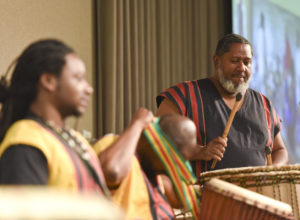
“There are some good people in my life who have really contributed to my experience here,” she said. “Sometimes I feel like I don’t get the support I need, though, because some people think you think you’re more than you are. The main thing I don’t like is how each culture is secluded. The moment you come here, it’s like everyone stays to themselves. It’s like if you’re black you can’t mix with whites.”
Giving Back
Africans in Birmingham spend a lot their time giving back.
The Ghana Committee for the Birmingham Sister Cities recently held a gala to raise money to build a library in Apaaso, Ghana. For Acquah, giving back to her country is important.
“My father always has been very adamant, even here, about working hard and giving back,” she said. “You work to put yourself in a position to help, not take away. God blesses you to give back.”
Freelance writer Solomon Crenshaw Jr. contributed to this article.
To read other stories about the African community in Birmingham, click here.



